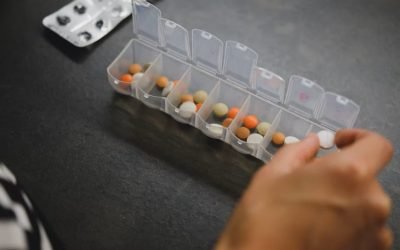Last updated: November, 2025
Addiction rarely affects only one person. It ripples through relationships, changing the way families communicate, trust, and connect. That’s why family therapy in addiction treatment plays such an essential role in sustainable recovery. It helps families heal together, not only by supporting the person in recovery but by repairing the emotional system that surrounds them.
What Is Family Therapy in Addiction Treatment?
Family therapy, also known as systemic therapy, focuses on the relationships between people rather than on one individual alone. Addiction disrupts those dynamics, often leaving families caught between love, frustration, and helplessness. Through therapy, these connections are explored and rebalanced in a safe, guided environment.
In systemic therapy for addiction, family members, partners, or close friends may join sessions to understand how their interactions influence recovery. Sometimes, loved ones unknowingly enable addictive behaviour; for example, by providing money, avoiding confrontation, or trying to “fix” problems for the person struggling. Therapy helps everyone recognise these patterns and replace them with healthier, more supportive ways of relating.
Sessions often include both individual and joint meetings. They focus on improving communication, restoring boundaries, and creating space for honesty and understanding.
How Family Systems Are Affected by Addiction
Every family operates as a unique emotional system. When one person develops an addiction, that system shifts. Roles and responsibilities may change, silence can replace openness, and tension can build. Parents might feel guilt or self-blame. Siblings may feel overlooked. Partners may oscillate between care and resentment.
Family therapy for addiction helps uncover these dynamics. By tracing how each person’s behaviour influences the other, therapists can identify repeating patterns (sometimes passed down through generations) and guide the family toward a healthier balance. This process not only supports the person in recovery but also brings relief to relatives who have carried unspoken stress for years.
Improving Communication and Rebuilding Trust
Addiction often damages trust within relationships. Promises may have been broken, communication may have turned defensive, and emotions can run high. In family therapy, these issues are addressed with empathy and structure.
Therapists teach techniques to express emotions clearly and respectfully, such as speaking in the first person, staying focused on the present, and avoiding blame. Families learn to pause during conflict instead of reacting in anger, and to recognise the difference between helping and enabling. Over time, this builds safety and openness, allowing genuine connection to return.
Simple practices, like acknowledging small steps of progress or expressing appreciation, become part of the healing process. Recognising what is going well can shift the family atmosphere from tension to hope.
Why Family Therapy Is Essential in Addiction Treatment
Addiction affects how a family functions on every level: emotional, practical, and psychological. A comprehensive addiction treatment plan that excludes family therapy leaves an important piece missing.
Including relatives in the recovery journey helps to:
- Understand the nature of addiction and its impact on the brain and behaviour
- Establish healthy boundaries and reduce codependency
- Develop effective communication and coping strategies
- Transform guilt, anger, or resentment into empathy and cooperation
- Strengthen the support network to prevent relapse
- Create a unified plan for ongoing recovery at home
When families heal together, the likelihood of long-term recovery increases dramatically. Everyone learns not only to support the individual in treatment but also to care for their own emotional wellbeing.
How Family Therapy Works in Practice
At first, family sessions may focus on education: learning how addiction develops, what withdrawal looks like, and why willpower alone isn’t enough. As therapy progresses, the focus shifts toward emotional repair.
Therapists guide conversations to uncover unspoken feelings and teach each person to communicate from vulnerability rather than anger. Couples or parents and children may have joint sessions to re-establish trust and rebuild closeness. Over time, families begin to function as a supportive team rather than as separate individuals reacting to crisis.
This process can feel challenging, but it is deeply rewarding. Many families describe it as the moment they finally understand each other again.
Family Therapy at Hacienda Paradiso, Málaga
At Hacienda Paradiso, family involvement is a cornerstone of treatment. Located in the peaceful countryside near Málaga, Spain, our environment supports not only the individual’s recovery but the family’s emotional renewal as well. Therapy sessions are guided by experienced clinicians who combine compassion with evidence-based care.
Families are invited to take part in educational workshops, guided discussions, and personalised sessions that strengthen communication and trust. The goal is not to assign blame but to help each member find stability and understanding.
Surrounded by sunlight, nature, and calm, Hacienda Paradiso provides a safe space for both individuals and their loved ones to rebuild relationships and rediscover connection. Healing, here, is a shared journey — one that restores balance to the entire family system.
Recovery Is a Family Process
Addiction recovery does not end when the individual stops using; it continues as relationships evolve, boundaries strengthen, and understanding grows. When families heal together, recovery becomes more resilient; less about control and more about connection.
Frequently Asked Questions: Family Therapy in Addiction Recovery
Sessions typically involve a mix of education, open discussion, and guided exercises to improve communication. The therapist helps identify patterns, such as enabling or avoidance, and supports the family in creating new ways of relating that promote recovery.
Yes. When families understand addiction and communicate effectively, they can recognise early warning signs and provide timely support. Strong boundaries and mutual trust reduce the likelihood of relapse and promote long-term stability.
Not necessarily. The therapist may invite specific relatives or close friends who have a significant influence on the person’s recovery. Participation is voluntary, and sessions are adapted to what feels safe and productive for everyone involved.
Conflict is common and expected. Therapy provides a structured environment where emotions can be expressed safely and constructively. The aim is not to assign blame but to build empathy and understanding between family members.
Yes. At Hacienda Paradiso in Málaga, family therapy is an integral part of the inpatient recovery process. Loved ones can join scheduled sessions, receive updates from clinicians, and take part in therapeutic activities designed to rebuild trust and connection.








